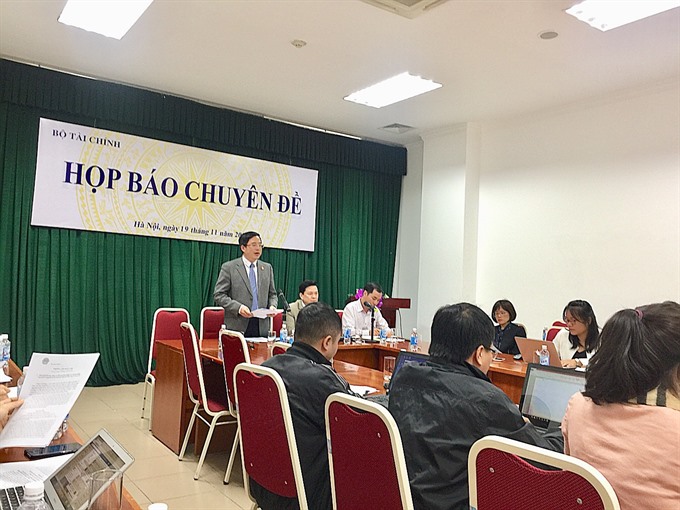The equitisation of State-owned enterprises (SOEs) is unlikely to meet this year’s target, as only 11 SOEs had completed the process by the end of September.

The equitisation of State-owned enterprises (SOEs) is unlikely to meet this year’s target, as only 11 SOEs had completed the process by the end of September.
Viet Nam plans to complete the equitisation of 85 SOEs this year, 64 of which are large companies.
This information was released by Dang Quyet Tien, director general of the Ministry of Finance’s Corporate Finance Department, during a meeting in Ha Noi on Monday.
“According to the initial plan, in 2018, HCM City had to equitise 39 enterprises, while the figure for Ha Noi was 11, but not a single firm from either city has been equitised yet,” Tien told the meeting.
Regarding State capital divestment, Tien said the divestment process during the first nine months was also sluggish and might fail to meet their goals for the year.
“Under the plan, there were 135 SOEs that had to undergo the divestment process in 2017 and 181 in 2018,” he said. “However, the State has divested capital from only 31 firms, 13 of which conducted the process in 2017 and 18 of which did so in 2018.”
The country reaped VND5.06 trillion (US$216 million) from 18 SOEs in the first six months of this year.
Tien also pointed out the units that did not complete divestment in 2017. Incomplete processes included the divestment of the Ministry of Industry and Trade from the Viet Nam Engine and Agricultural Machinery Corporation with a total divestment value of VND7 trillion, the divestment of the Ministry of Health from the Viet Nam Pharmaceutical Corporation with a value of VND829 billion and the divestment of the Ministry of Construction from eight enterprises with a total value of VND2.4 trillion.
Tien attributed the delay of SOEs equitisation and State capital divestment to inadequate measures from the ministries, branches and localities involved in the process.
“The firms’ leaders’ hesitation and lack of assertiveness are the cause,” he said, adding that the economy’s capacity to absorb capital of businesses remains weak.
Equitisation and divestment encountered many obstacles, notably the influence of interest groups and difficulties in the search for consultants, enterprise evaluations and approval of land use plans and complicated pre-equitised auditing processes of big corporations.
Authorities need to strengthen inspection and supervision, as well as sanction leaders of delaying SOEs. It is also necessary to revise the list of SOEs awaiting equitisation and divestment and urge them to follow the plan, said Nguyen Hong Long, deputy head of the Government’s Steering Committee for Enterprise Renovation and Development.
If enterprises registered to equitise in 2017 but fail to do in 2018, Long said, they should be transferred to the State Capital Investment Corporation, the Government agency that oversees most SOEs. — VNS





